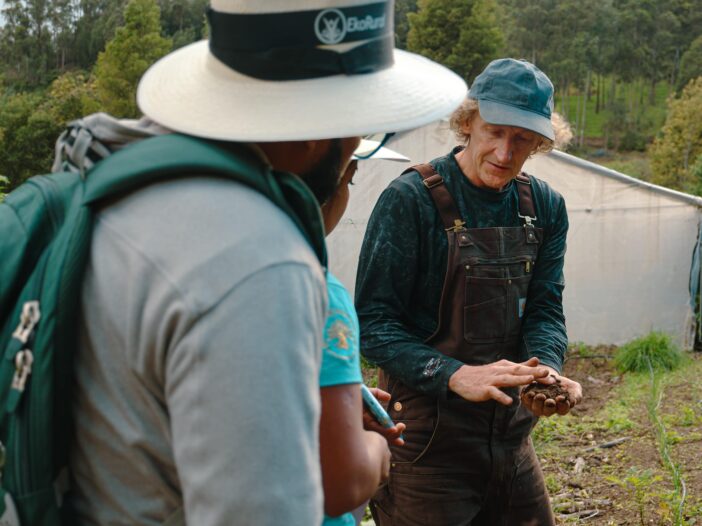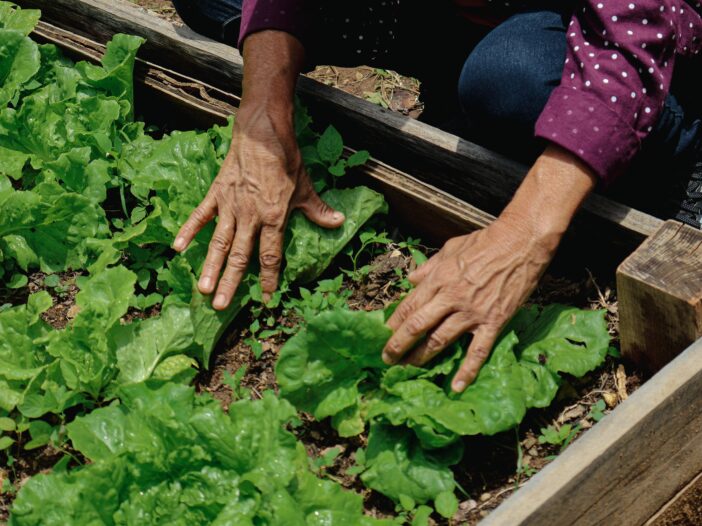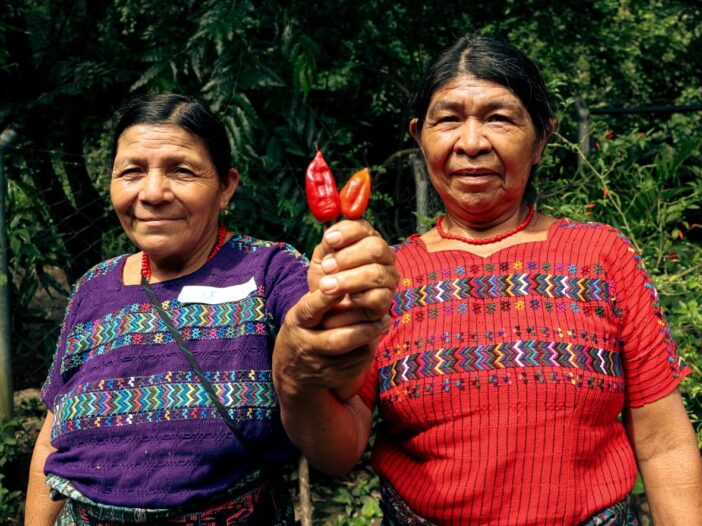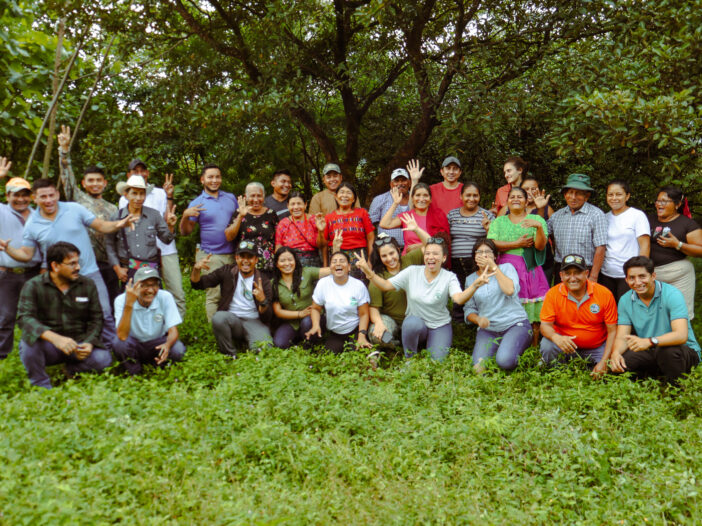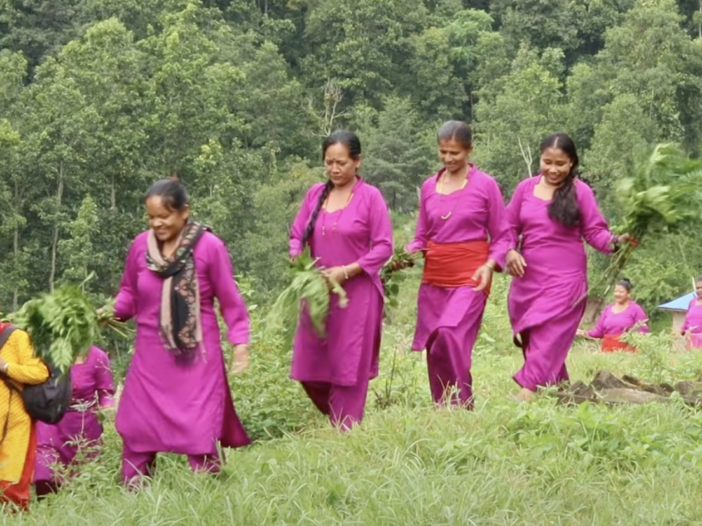The smell always got there first. Upstairs, while I played with my cousins, the scent of my French grandmother's cooking filled the house; roasted potatoes, bubbling butter, something meaty and rich we couldn't quite place yet. Everything came from nearby: mushrooms from our morning walk in the woods, herbs from the garden, butter churned by a neighbor, and meat from healthy grass-fed cows, locally known as "La Charolaise." Each meal was a long sensory feast. We ate while listening to my … [Read more...] about Returning to our Grandmothers’ Kitchens: Eating with an Agroecological Mindset
Agroecology
What Grows on Concrete? Lessons from the Urkuwayku Regenerative Farm in Ecuador
Perched atop a breezy hillside in the Ecuadorian Andes, a 5-hectare farm shows what the future of food can look like. At first glance, Urkuwayku ('Windy Mountain' in Kichwa) looks wild—in the best way. Trees stretch skyward. Flowers bloom in chaotic harmony. Fruits, herbs, grains, and vegetables spring from the ground at every turn. Birds chirp. Insects buzz. Life hums in every corner. This is no accident. Urkuwayku is a living, breathing system—auto-regenerating, as its founder Stephen … [Read more...] about What Grows on Concrete? Lessons from the Urkuwayku Regenerative Farm in Ecuador
Imagining an Agroecological Future: Pathways & Blockers
Vast fields of uniform crops have long defined our agricultural landscapes—a familiar promise of endless abundance. This is the image many of us have known for decades, so ingrained in our way of life that shifting to a different model seems inconceivable. Today, the cracks in this system are undeniable: drought and extreme heat burning hectares of land. Unforeseen frosts and storms disturbing seasons' rhythm and wreaking havoc on plants' growing cycles. Fruits and vegetables that once … [Read more...] about Imagining an Agroecological Future: Pathways & Blockers
Comunidades de Guatemala y Honduras fortalecen la soberanía alimentaria con reservas estratégicas de granos y bancos de semillas
Durante una semana, representantes de comunidades de Guatemala y Honduras se congregaron en las oficinas de la Asociación de Comités Ecológicos del Sur de Honduras (ACESH) con la intención de compartir saberes sobre almacenamiento de granos, conservación de semillas y estrategias para la soberanía alimentaria. Agricultores, coordinadores comunitarios y técnicos de Qachuu Aloom, Vecinos Honduras, Asociación de Agricultores las Ilusiones del Divisadero (AGRIDIVI) y ACESH intercambiaron … [Read more...] about Comunidades de Guatemala y Honduras fortalecen la soberanía alimentaria con reservas estratégicas de granos y bancos de semillas
Communities Strengthening Food Sovereignty in Central America with Seed Banks and Strategic Grain Reserves
This article was originally published in Spanish. Read it here. For a week, representatives from communities in Guatemala and Honduras gathered at the Association of Ecological Committees of Southern Honduras (ACESH) offices to share knowledge on grain storage, seed conservation, and strategies for food sovereignty. Farmers, community coordinators, and technicians from our partners Qachuu Aloom, Vecinos Honduras, the Association of Farmers Las Ilusiones del Divisadero (AGRIDIVI), and ACESH … [Read more...] about Communities Strengthening Food Sovereignty in Central America with Seed Banks and Strategic Grain Reserves
This Women’s Group in Nepal is Restoring Soil Health with Biofertilizers
In a small farming village tucked in Nepal’s hilly countryside, women in pink and red saris crouch in tidy rows of plump tomatoes, their hands feeding the soil. Nearby, a group of women—the Jwaladevi Women Farmer Group—gather in a circle around a pile of green leaves to prepare biofertilizers. One of them chops aromatic herbs—nettle, neem, and bitter Artemisia—while another stirs them into a muddy mixture in a large plastic drum. Older women sit cross-legged, observing the process with keen … [Read more...] about This Women’s Group in Nepal is Restoring Soil Health with Biofertilizers


